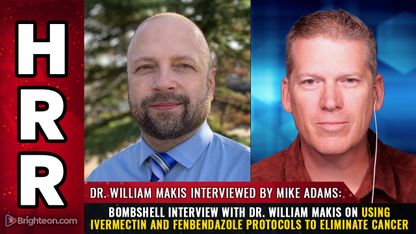
New research published by California State University (CSU) suggests that ozone and small particle pollution is worse in California than anywhere else in the United States. More than 90 percent of Californians currently live in areas with unhealthy air at some point during the year, even in areas where, statistically speaking, pollution levels have decreased.
The top four U.S. cities with the worst air quality are all in California, the report reveals. And seven of the top 10 cities on the American Lung Association's (ALA) list of cities with the worst air quality are all in California. Meanwhile, Gov. Brown has prioritized the global climate change agenda while Californians suffer from having to breathe polluted and potentially disease-causing air.
"The Los Angeles basin is exposed to the highest ozone levels in the country," says Dr. Steve LaDochy, a professor from CSU who specializes in studying air pollution. Dr. LaDochy is one of the co-authors of the new study. "It is getting better here, but it's still the worst. There are a lot of people still living in unhealthy areas, and there is still a need for improvement."
California air nearly 50 percent more polluted than rest of country
To be fair, the unique geography of California is one of the major reasons why the state is typically more polluted than others. Many of its largest cities, including Los Angeles, are basin in shape, meaning they hold air like a bowl, while the surrounding mountains prevent it from dispersing. This is what causes major buildups of chemical pollution, especially on hot, sunny days.
Speaking of hot, sunny days, this is another major contributor to California's air pollution problem. The hot, beating sun combined with tens of thousands of cars moving about creates a situation in which California is going to be more polluted than most other places. With an air pollution average weighted exposure of 12.5, compared to a national average of 8.6, California is nearly 50 percent more polluted than anywhere else in the country.
"Our geography and our climate are two very big factors," added Dr. LaDochy in a statement. "It is a byproduct of our sunny weather and so many cars on the road. So when the ozone levels go up, it is basically because there are a lot of cars and sunlight present."
The effects of this are a whole lot more serious than just the inconvenience of having to look at unsightly smog and perhaps coughing a little. Data presented by the U.S. Environmental Protection Agency (EPA) shows that chronic exposure to air pollution – even that which falls within established legal limits – is a major cause of death in the world today. As many as 5.5 million people die every year globally as a result of air pollution, according to the EPA, and air pollution is said to be the number on cause of asthma.
At the same time, California's carbon dioxide (CO2) emissions are declining by less than the U.S. national average, according to the pro-nuclear "green" group Environmental Progress. Because California shut down five nuclear reactors, none of which generated air pollution, the state's emissions are now two-and-a-half times higher than they should be, adding more fuel to the fire.
Sources:
Please contact us for more information.























